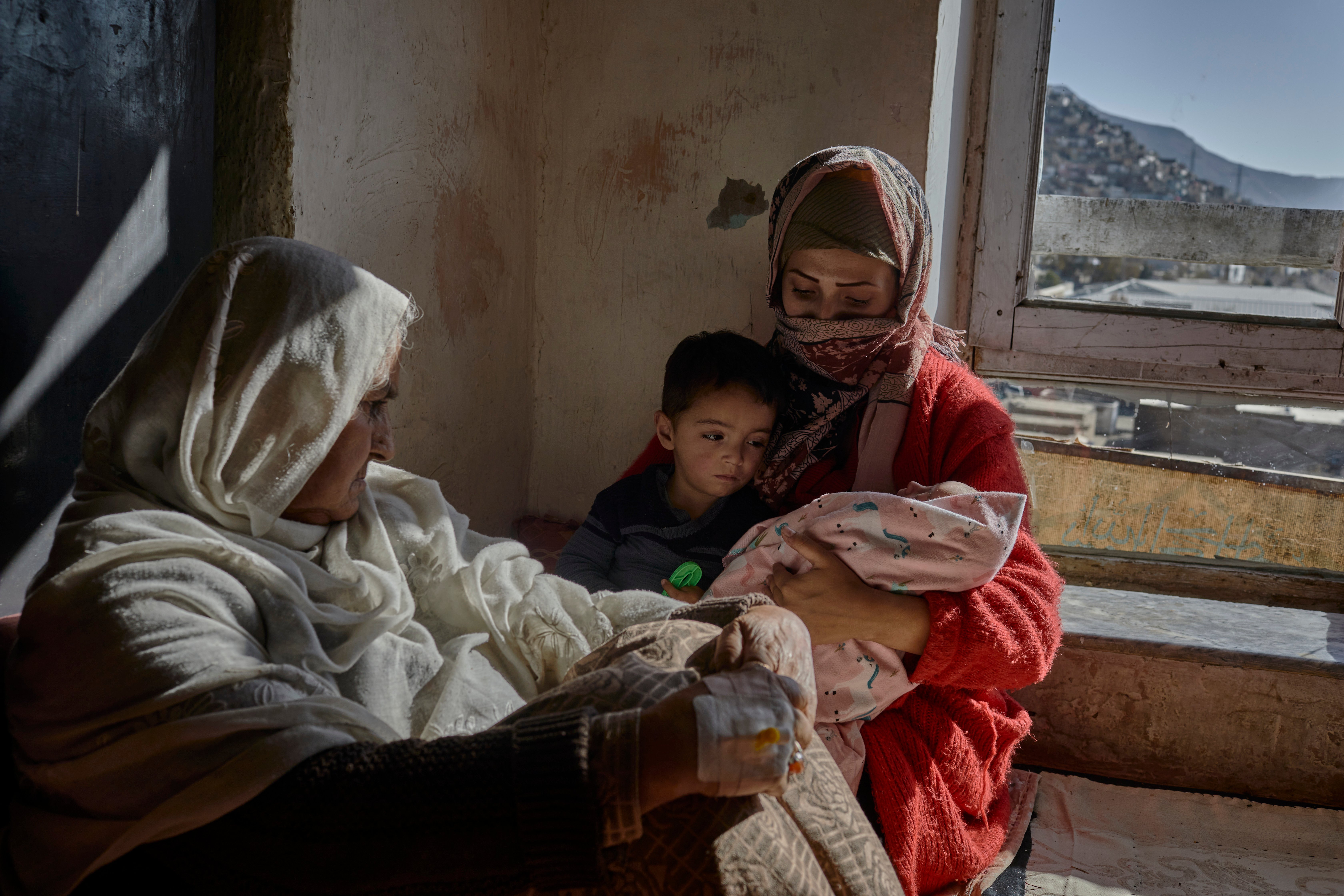We must act to empower women, says Lubbers at UNHCR gender awards
We must act to empower women, says Lubbers at UNHCR gender awards

GENEVA, Dec 5 (UNHCR) - UN High Commissioner Ruud Lubbers on Friday gave 20 awards to refugees, non-governmental organisations (NGOs) and UNHCR staff for their work in building the capacities of refugee women and promoting gender equality, but cautioned that despite the progress made so far, there was still need for more work.
"Together we have been pushing this rock, and it has moved quite a lot but it is not at the top yet," he said in symbolic reference to the collective effort being made by UNHCR, its partners and refugees to bring about gender equality.
Presiding over the ceremony for the "2003 UNHCR Award for the Promotion of Gender Equality and the Empowerment of Refugee Women" at the Geneva headquarters of UNHCR, Lubbers recognised the efforts of six NGOs working with refugees or internally displaced people, five refugee groups/individuals, eight UNHCR staff and the entire UNHCR Ghana office team.
"We should give public recognition for their work. It is stimulating for them and for others," Lubbers said in remarks at Friday's ceremony, the second since the inception of the award scheme in 2002.
The UNHCR chief noted that one of the obstacles in the joint effort to build the skills and capacities of refugee women was violence against them, which he said prevented refugee women from living full lives in safety and security.
"Violence undermines women's personal, social and economic advancement and prevents us from supporting their choices and capacities for durable solutions," said the High Commissioner, who also called for more action to combat violence against women.
"We must act - act to inform, act to support, act to empower and act to remove all the barriers which make women vulnerable to violence."
The award-giving ceremony coincides with a world-wide campaign dubbed "16 days of activism to end violence against women", which is held every year from November 25 - December 10 to step up efforts against gender violence.
The winners of this year's UNHCR awards were drawn from Africa, North America, Asia, Europe and the Middle East.
On hand to receive the certificates of recognition were Linda Awanis, an Iraqi refugee and President of the Council of Refugee Women in Bulgaria; and Dzana Popovic, a former refugee from Sarajevo and social worker with the Organisation for Aid to Refugees which is based in the Czech capital, Prague. Two UNHCR staff members - Aruni Arulsubramaniam from the agency's office in Sri Lanka and Nemia Temporal, based in Geneva, were also present. Another recipient of the award - Mary Diaz, the head of the US-based Women's Commission for Refugee Women and Children - expressed her appreciation in a pre-taped video address.
The number of award recipients has doubled from 10 last year to 20 this year to reflect the growing efforts by a wide variety of actors to educate refugee women about their rights, build their skills and ensure better representation and involvement of refugee women in key activities.
In her acceptance statement, Linda Awanis thanked UNHCR for involving refugees, in particular refugee women, in the search for solutions to their problems.
"Thank you for trusting us and for believing that your efforts would not be wasted on us," the Iraqi refugee said. "Thank you also to all the men who found the courage to work as volunteers in a female organisation even though it was against their tradition and culture."
Nemia Temporal, who received the award for her work as UNHCR's Regional Advisor for Women in the Europe region, described her work as both "challenging and rewarding".
Challenging, she said, because the success of her work lay in a change of attitudes, mindsets, and even the organisation's policies. Rewarding, she added, because she knew that through her work she could change the lives of refugee women: "We know we have done a good job when refugee women can take a lead role in promoting their own rights."
Other recipients of the 2003 award are: Narayana Gedara Kamalawathie (Sri Lanka), Vera Roubalova (Czech Republic), Bonga Women's Association (Ethiopia), Somali Women's Concern (North-East Somalia), Chitra Maunaguru (Sri Lanka), Hawo Abdi Mohamed (Somali refugee, Kenya), Teresa Musole (Angolan government), Aruni Arulsubramaniam (UNHCR, Sri Lanka), Shabnam Besharat (UNHCR, Iran), Mary Flomo Hall (UNHCR, Liberia), Linnie Kesselly (UNHCR, Uganda), Margaria Vargas (UNHCR, Indonesia), Alexina Rusere (UNHCR, Sierra Leone), Nyorovai Whande (UNHCR, Geneva).









